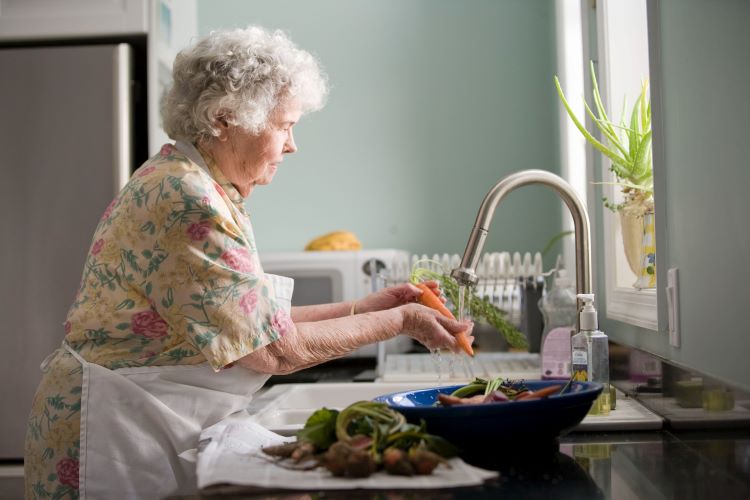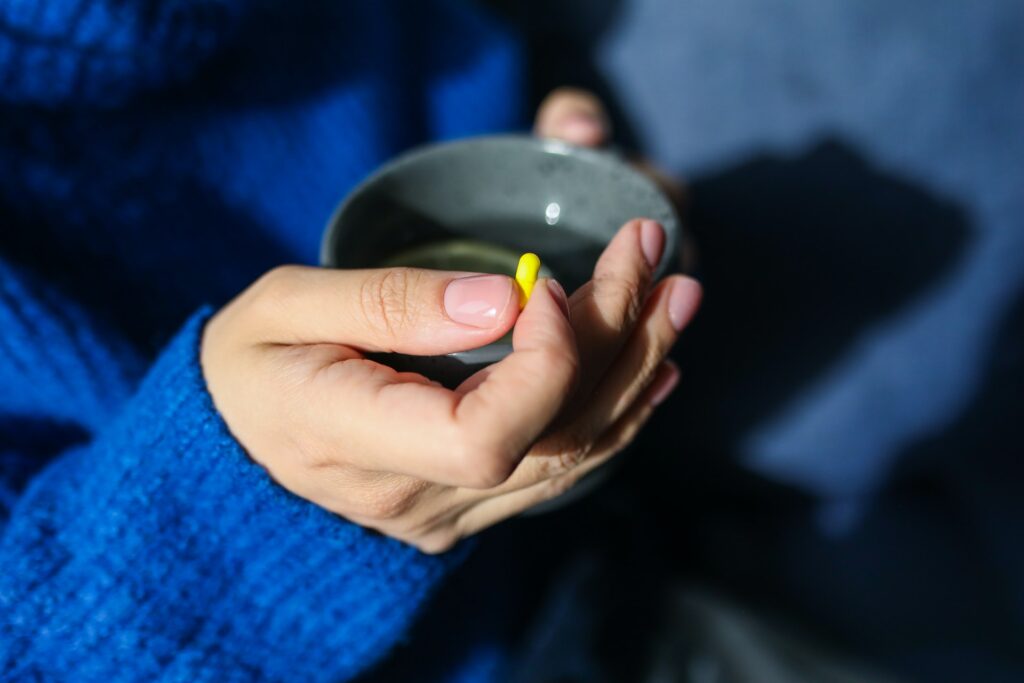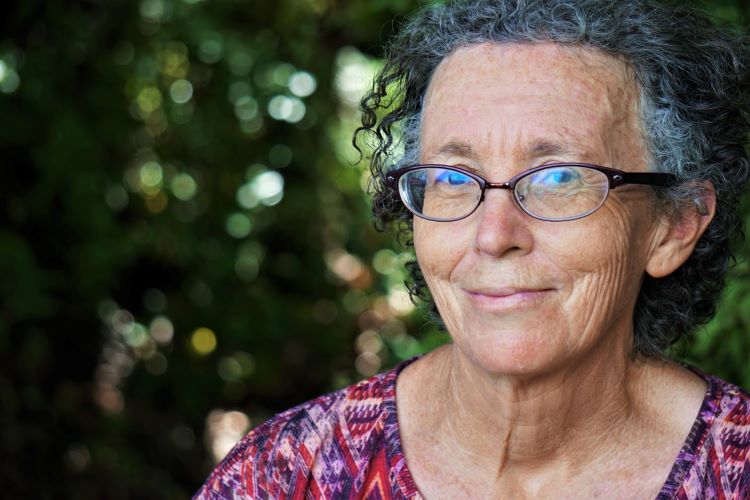Drug & Alcohol Rehab in Nuneaton
Despite being a quaint market town with a population of under 100,000, Nuneaton is located in an area of the UK suffering from a substance addiction crisis.
Every three days in the West Midlands, someone dies from drug poisoning, with this harrowing figure having far-reaching consequences for towns in Warwickshire: where Nuneaton is situated.
According to the 2022 Warwickshire Alcohol Health Needs Assessment [1], Nuneaton and Bedworth had a significantly higher number of premises selling alcohol than the UK average.
In 2021, 711 people entered treatment for alcohol addiction in Warwickshire despite there being an estimated 4,018 alcohol-dependent individuals in the area.
Worryingly, this demonstrates that not enough people are getting the help they deserve at a drug and alcohol rehab in Nuneaton.
Those battling Alcohol Use Disorder (AUD) also present for hospital treatment with an array of addiction-related afflictions.
The Local Alcohol Profiles for Nuneaton and Bedworth [2] reported that in 2020-2021, local hospitals treated 840 individuals for alcohol-specific conditions, a further 633 for alcohol-related conditions, and an additional 50 under-18 AUD patients.
Furthermore, Warwickshire County Council [3] revealed that the region had a drug mortality rate of around 4.2 per 100,000 between 2018-2020, with this figure climbing ever since.
While 26.1% of patients completed treatment for drug addiction in 2020, it’s apparent that many more require care at a drug and alcohol rehab in Nuneaton.
What is Drug and Alcohol Addiction?

Despite the prevalence of scientific research on the topic of addiction, many people aren’t aware of just how complex this condition is.
Defined by a complex array of environmental, social, and biological components, addiction is actually a psychological disorder affecting how our brains function [4].
Due to its parallels with other diseases, many experts now refer to addiction as Substance Use Disorder (SUD).
The ASAM defines SUD as a “chronic medical disease involving complex interactions among brain circuits” [5], with these changes in the brain perpetuating compulsive substance use.
Drug or alcohol use stimulates the brain’s reward system to release dopamine into the system, which is how we feel the euphoria associated with substance use.
The brain will quickly come to associate said substance with dopamine release, but will also need more and more of it to feel the same effects: a phenomenon known as increasing tolerance.
This leads to uncontrolled use and a compulsive focus on cues relating to drugs to alcohol.
Thankfully, these neurological changes are reversible by undergoing treatment at a drug and alcohol rehab in Nuneaton.
At Rehab Recovery, we offer free advice from a team of non-judgemental professionals, many of whom are in recovery and understand how hard it can be to change your relationship with addiction.
For more information, simply reach out to our 24/7, confidential hotline on 0800 088 66 86.
Drug and Alcohol Withdrawal

Whether a SUD victim is aware of their problematic behaviour or not, they’ll undergo the same psychological and physical symptoms when they either try to quit or can’t obtain their fix.
Withdrawal manifests because the body has become used to the presence of a drug, and so can’t function properly without it.
Some adverse symptoms simply cease on their own in a few days, while others will need medical attention at a drug and alcohol rehab [6] in Nuneaton or elsewhere.
One individual suffering from cannabis dependency might experience headaches and fatigue, while someone with AUD may show signs of Delirium Tremens (DT).
DT is a serious withdrawal syndrome with symptoms ranging from confusion, hallucinations, seizure, and even cardiac arrest in some cases.
As such, patients need to be properly assessed and their risk of withdrawal identified.
Addicted individuals may experience an array of other physical and mental presentations as part of their withdrawal experience.
Recurrent symptoms include muscle aches, runny nose, sweating, agitation, anxiety, insomnia, vomiting, and diarrhoea.
Admissions Process into a Drug and Alcohol Rehab

Whether it’s yourself or a family member in crisis, it’s important to seek the right support when thinking of entering a drug and alcohol rehab in Nuneaton.
Here at Rehab Recovery, we’ve curated a non-judgmental, sympathetic admissions team [7] to help you navigate the process of recovery, and many have direct experience with the rehab procedure.
This will consist of a brief chat with a member of the team about the nature of your call, during which they can book you a virtual slot with one of our addiction specialists.
Usually conducted over the phone, an addiction consultant will carry out a full psychological and health evaluation to gain a greater understanding of your individual needs.
Throughout the 15-20 minute call, they’ll make queries relating to your substance use, living situation, medical history, and psychological health.
After this assessment, we’ll be able to make specific rehab recommendations based on your preferences, budget, and unique addiction.
At Rehab Recovery, we offer free advice from a team of non-judgemental professionals, many of whom are in recovery and understand how hard it can be to change your relationship with addiction.
For more information about rehab in Nuneaton, simply reach out to our 24/7, confidential hotline on 0800 088 66 86.
Treatment for Co-Occurring Disorders in Rehab

When someone enters rehab treatment, it’s likely that they’ll have not just one, but two conditions.
Battling co-occurring disorders means having a substance addiction at the same time as another psychiatric condition [8], and it’s a situation that many find themselves in.
Though possible combinations are endless, examples of comorbidity include drug addiction and schizophrenia, AUD and depression, or cannabis addiction and anxiety.
Due to the risk of symptoms mimicking each other or overlapping, making an accurate dual diagnosis is often difficult.
This makes receiving a full assessment at a residential rehab clinic all the more important.
Psychological screenings on admission provide a strong foundation for bespoke treatments and allow clinicians to treat both disorders.
Dual diagnosis screening aims to identify a patient’s symptomatology, self-control and risk profile, trauma history, and details of any previous treatment.
Following this, it’s important for patients to receive inpatient care and reduce the risk of relapse by staying on-site.
Therapeutic interventions that have been efficacious in comorbidity treatment include behavioural therapies, mindfulness practice, cognitive therapies, and holistic methods.
Medicated Detox at a Drug and Alcohol Rehab in Nuneaton

To treat addiction in a way that ensures longevity, it’s crucial to establish sobriety safely. With this in mind, each drug and alcohol rehab in Nuneaton offers medically supervised detoxes [9] to their patients with the promise of personalised care.
Medicated detox is the phase wherein substances and toxins are cleared from the body with the help of a bespoke medication programme.
The primary advantage of medicated detox is that constant supervision is provided to eliminate or reduce withdrawal symptoms.
Throughout the 1-3 weeks of detox and stabilisation, medical professionals will be at your beck and call to help you remain comfortable.
They’ll also track your progress and give you regular updates to ensure motivation levels remain high.
To ease the body’s physical dependence on a substance, medications are often prescribed based on the patient’s individual needs.
For victims of heroin addiction, partial or full opioid agonists are used to stabilise withdrawal, while AUD victims may receive anticonvulsants or benzodiazepines to reduce anxiety.
At Rehab Recovery, we offer free advice from a team of non-judgemental professionals, many of whom are in recovery and understand how hard it can be to change your relationship with addiction.
For more information, simply reach out to our 24/7, confidential hotline on 0800 088 66 86.
Therapeutic Treatment at a Drug and Alcohol Rehab in Nuneaton

Once you’ve been discharged from your detox programme, professionals at a drug and alcohol rehab in Nuneaton will suggest you begin therapeutic measures [10].
Undertaking counselling and therapy can help patients understand the causes of their addiction, with techniques including:
- Cognitive Behavioural Therapy [11] (CBT): Many people entering treatment at rehab have some prior recognition of CBT. This method has been a popular mode of therapy for decades, and its techniques are valued for their ability to rewire negative thought patterns. Cognitive distortions such as catastrophising or polarised thinking can exacerbate SUD, and it’s CBT’s job to amend them.
- Dialectical Behavioural Therapy [11] (DBT): While DBT is grouped in the same bracket as other behavioural therapies, it’s one of the only methods that focus on emotional recovery. It aims to restore emotional balance by asking patients to focus on the opposing ideas of acceptance and change. During sessions, subjects are urged to accept difficult feelings while cultivating ways to manage distress.
- Holistic Therapy [12] (HT): As part of their integrative treatment, rehab inpatients often combine psychotherapies with alternative, on-medicinal methods such as HT. With “holistic” meaning “entire”, HT aims to treat the whole patient: including mind, body, and emotions. Patients can choose from various activities as part of their regimen, including pilates, yoga, and meditation to name a few.
- Family Therapy [13] (FT): Relationship patterns within a family, when left to fester, can lead to unhealthy substance use over time and be the root cause of some addictions. FT at a drug and alcohol rehab in Nuneaton invited entire groups of loved ones onto the rehab premises so that they can rebuild their relationships with the addicted person. Through talking and team-building activities, they’ll learn to repair closeness and rekindle trust.
Aftercare at a Drug and Alcohol Rehab

As an inpatient at a drug and alcohol rehab in Nuneaton, everything you need to safely recover is taken care of, and this doesn’t stop when you graduate from the clinic.
In order to help patients stay strong and continue feeling motivated, rehab centres provide personalised aftercare opportunities at no additional cost, and for a minimum of one year.
Your comprehensive aftercare programme will include specialist advice, continued individual therapy as an outpatient, and access to an array of group support.
Former patients may also continue to receive medicinal support such as psychiatric medications to help them manage any co-occurring mental health illnesses.
Perhaps the most infamous element of rehab aftercare is attending a nearby 12-Step group such as Narcotics Anonymous [15], Alcoholics Anonymous [16], and newer additions like SMART Recovery [17].
Recovery groups help provide former patients with a sense of community, decrease the potential for loneliness, and reinforce their commitment towards living a healthier life.
Attendance can be flexible to account for people’s work life but should remain consistent throughout recovery.
At Rehab Recovery, we offer free advice from a team of non-judgemental professionals, many of whom are in recovery and understand how hard it can be to change your relationship with addiction.
For more information about rehab in Nuneaton, simply reach out to our 24/7, confidential hotline on 0800 088 66 86.

References
[1] Warwickshire Alcohol Health Needs Assessment, 2022 https://api.warwickshire.gov.uk/documents/WCCC-1350011118-3161
[2] Local Alcohol Profiles for England, Nuneaton and Bedworth https://fingertips.phe.org.uk/profile/local-alcohol-profiles/data#page/1/gid/1938132984/ati/401/iid/93763/age/1/sex/4/cat/-1/ctp/-1/yrr/1/cid/4/tbm/1
[3] Warwickshire County Council Health Report, 2021 https://data.warwickshire.gov.uk/health-and-social-care/#/view-report/1835e7ef70a748c79aa478f386581700/___iaFirstFeature/G3
[4] The Science of Addiction: From Neurobiology to Treatment https://www.google.co.uk/books/edition/The_Science_of_Addiction_From_Neurobiolo/8Ib9PRXDPIUC?hl=en&gbpv=0
[5] ASAM Definition of Addiction https://www.asam.org/quality-care/definition-of-addiction
[6] Principles of Drug Addiction Treatment: A Research-Based Guide (2nd Ed.) https://books.google.co.th/books?id=mtMdJ3qqSnQC&printsec=frontcover&dq=addiction+treatment&hl=en&sa=X&ved=2ahUKEwiDlMP3zob3AhXiwjgGHYJtDZ8Q6AF6BAgDEAI#v=onepage&q=outpatient&f=false
[7] Rehab Recovery: Meet the Team https://www.rehab-recovery.co.uk/meet-the-team/
[8] Co-occurring Mental Illness and Substance Use Disorders: A Guide to Diagnosis and Treatment https://www.google.co.uk/books/edition/Co_occurring_Mental_Illness_and_Substanc/vkQ4DwAAQBAJ?hl=en&gbpv=0
[9] Inpatient Detoxification for Drug and Alcohol Dependency https://www.google.co.uk/books/edition/Inpatient_Detoxification_for_Drug_and_Al/kFkFEAAAQBAJ?hl=en&gbpv=0
[10] Addiction Counselling Competencies: The Knowledge, Skills and Attitudes of Professional Practice https://books.google.co.th/books?id=7UVgsB4tJH4C&pg=PA213&dq=addiction&hl=en&sa=X&ved=2ahUKEwiCmr60lIL3AhUkxDgGHSa2AJEQ6AF6BAgGEAI#v=onepage&q&f=false
[11] Rehab Recovery: Cognitive Behavioural Therapy in Addiction Treatment https://www.rehab-recovery.co.uk/addiction-treatments/cognitive-behavioural-therapy/
[12] Rehab Recovery: DBT For Addiction Treatment https://www.rehab-recovery.co.uk/addiction-treatments/dbt/
[13] Healing and Wholeness: Complementary and Alternative Therapies for Mental Health https://www.google.co.uk/books/edition/Healing_and_Wholeness/XM_CWVYE_KEC?hl=en&gbpv=0
[14] Rehab Recovery: Family Addiction Counselling https://www.rehab-recovery.co.uk/addiction-treatments/family-therapy/
[15] Rehab Recovery: What is Narcotics Anonymous? https://www.rehab-recovery.co.uk/addiction-treatments/narcotics-anonymous/
[16] Rehab Recovery: Alcoholics Anonymous https://www.rehab-recovery.co.uk/addiction-treatments/alcoholics-anonymous/
[17] Rehab Recovery: SMART Recovery, What Is It and How Can It Help? https://www.rehab-recovery.co.uk/addiction-treatments/smart-recovery-what-it-is-and-how-it-can-help/


